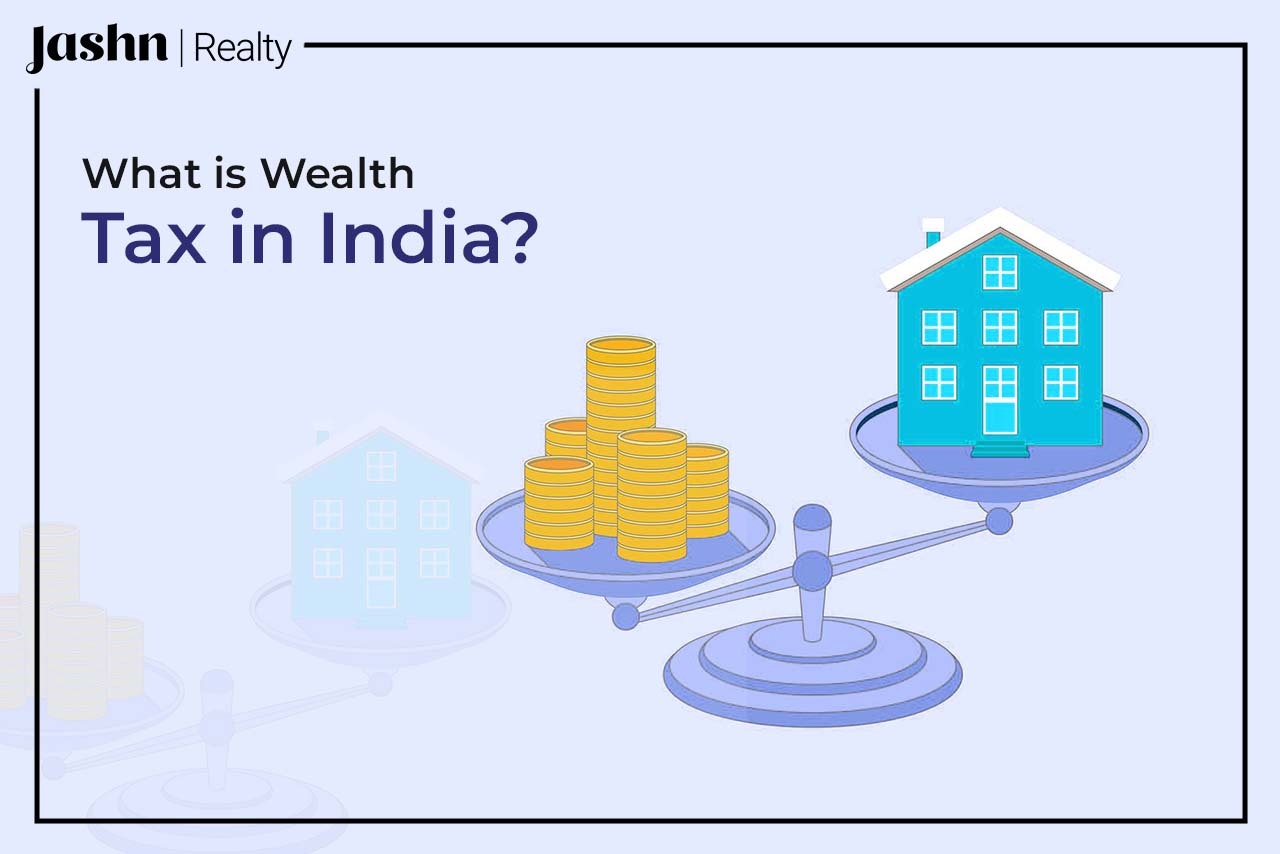The wealth tax in India is a charge levied by the government on net wealth or assets owned by individuals or entities. This tax is on a person’s accumulated wealth.
The Wealth Tax Act, established in 1957 and applicable to the entire country, was abolished in the Union Budget 2016-2017. This significant change was announced by the then finance minister Arun Jaitley.
Definition and example of wealth tax
The total value of a person’s assets, including investments, real estate, jewellery, cash, vehicles, and other tangible and intangible possessions, comes under a direct tax regime called wealth tax.
This tax is calculated according to the net wealth, which means the total value of the assets minus liabilities.
Examples of personal assets that comes under the Wealth Tax
Real estate properties
The calculation of Wealth Tax is based on the value of properties you own. All the residential projects or houses, commercial buildings, villas, and lands owned by you come under this.
Personal assets
Personal possessions like jewellery, antiques, luxury vehicles, artwork, and other assets are also subject to taxation.
Investments
If you own mutual funds, bonds, stocks, and other investments, they all are subject to Wealth Tax.
Cash & bank deposits
According to the Wealth Tax Act, if you deposit your money in bank, hold cash in hand, or fix the deposits, then it call comes under taxation.
Reasons why Wealth Tax has been removed
Here’s why the wealth tax has been removed.
Simplifying tax
The Wealth Tax was complex, so the Indian government abolished it to keep things simple, seamless, and transparent.
Boost revenue collection
A surcharge was introduced in place of the wealth tax, which is projected to boost revenue.
Complexity and formalities
A lot was involved, and the process of calculating the wealth tax was complex. For example, the owners of jewellery had to obtain a valuation report from a registered valuer to assess their possession as per the applicable rules.
Lack of cognizance
Only a few had knowledge about the wealth tax. Majority of people skipped filing the wealth tax that led to its abolishment.
Conclusion
Wealth tax was imposed on individuals who owned personal assets like real estate, jewellery, cash, vehicles, and other tangible/intangible possessions. However, due to non-filing, unawareness, and the complexities involved, the government abolished this tax regime in 2016.







